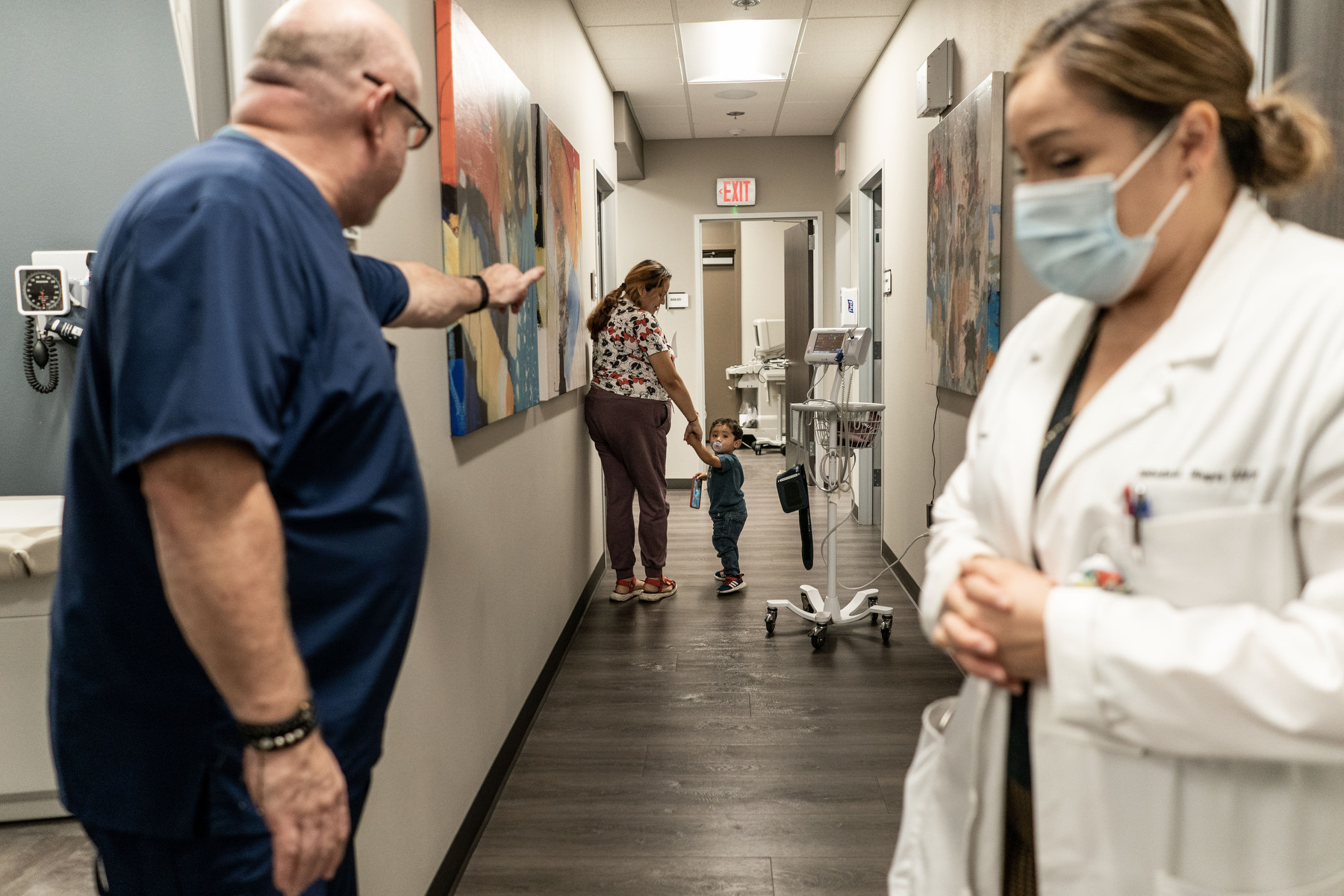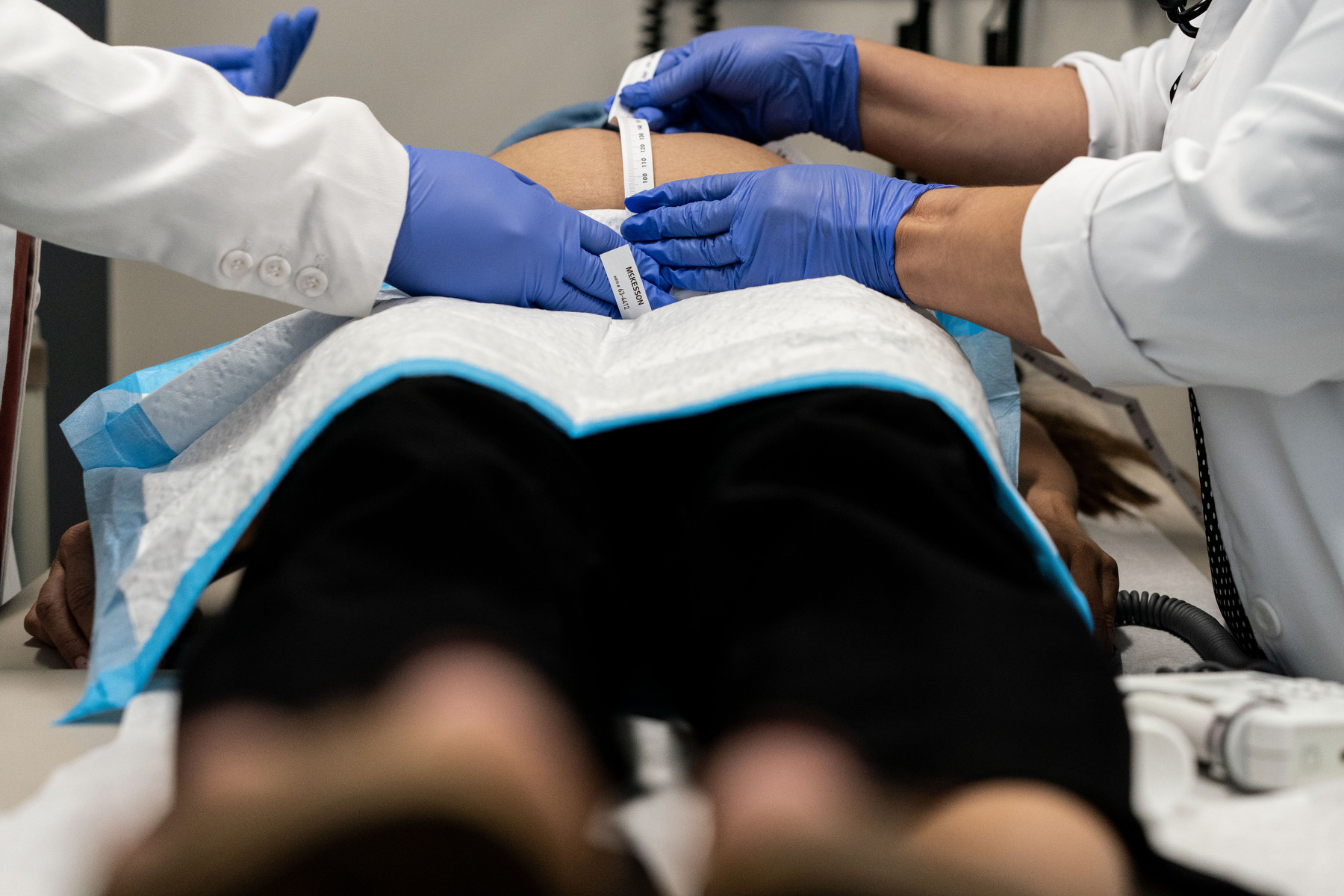A federal move to withhold 16 family planning grants across 22 states could undercut access to basic reproductive health care — including cancer screenings, testing for sexually transmitted infections and contraception. The impact will likely be felt hardest in states with conservative leadership, which include some of the poorest states in the country.
Beginning this week, the Department of Health and Human Services (HHS) said it is temporarily withholding millions of dollars of grants through Title X, the federal program that supports family planning services for low-income people, “pending an evaluation of possible violations of their grant terms,” according to HHS spokesman Andrew Nixon. He said the targeted providers may be in violation of “federal civil rights law” — language the administration has used to target programs promoting racial and gender-based equality — as well as President Donald Trump’s immigration orders.
Reproductive health providers said those arguments are misleading and are being used as an excuse to withhold funding from contraception providers.
If upheld, the cuts, worth about $65.8 million, could affect 870 health facilities serving about 846,000 patients across the country, according to a tally by the National Family Planning and Reproductive Health Association, a membership organization for providers. Clinics affected by the administration’s move are based in Alaska, California, Connecticut, Idaho, Indiana, Kentucky, Maine, Minnesota, Mississippi, Missouri, Montana, New Hampshire, North Carolina, Ohio, Oklahoma, Pennsylvania, South Carolina, Tennessee, Texas, Utah, Virginia and West Virginia.
Because of the cuts, seven states — California, Hawaii, Maine, Mississippi, Missouri, Montana and Utah — have no clinics receiving federal Title X funds, potentially making it harder for patients to access basic family planning services. Clare Coleman, president of the National Family Planning and Reproductive Health Association, said the size of cuts in Ohio, Idaho, Alaska, and North and South Carolina could have tangible implications for patients, noting the size of the grants and the unlikelihood of state governments stepping in to replace lost federal funding. Title X clinics are often the main providers in their communities of birth control services, testing for sexually transmitted infections, cancer screenings, sex education and wellness checkups. Many also provide gender-affirming care, though that service is not funded by Title X.
The impact could also be heightened in rural areas, where Title X clinics can be one of the main reliable providers of reproductive health care — especially for young people, per one 2022 study. Maine, Mississippi and Montana have some of the country’s highest shares of residents living in rural areas, and Mississippi has one of the highest poverty rates.
“This will create a cascading effect across the South, disrupting access to basic health care services such as cancer screenings, STI testing and treatment, birth control, infertility care and more,” said Jamie Bardwell, the co-founder of Converge, a provider that is the sole Title X grantee in Mississippi. “These disruptions will lead to increased negative health outcomes, including higher rates of unintended pregnancy and STIs.”
The letter Converge received to say its funding had been withheld pointed to a statement the organization made in 2020 opposing racism in health care, citing the death of George Floyd — a Black man in Minnesota killed by police — and the history of reproductive coercion, which has historically targeted Black women in particular. The letter, sent by HHS and reviewed by The 19th, argued that the statement violated the Civil Rights Act, a law that ended segregation and outlawed discrimination based on race, sex, religion or national origin.
In 2024, Converge provided care to 30,000 people in Mississippi across 91 health centers; in Tennessee, its 33 facilities saw almost 12,000 patients. Between 2018 and 2022, the most recent years for which federal data is available, Mississippi had the second-highest rate of pregnancy-related deaths in the country, falling only behind Tennessee. Just under 40 percent of Mississippi residents are Black, per the U.S. Census Bureau — and state data from 2017 through 2019 shows that Black women in the state were at four times greater risk of pregnancy-related death compared to White women.
Some family planning clinics may be able to secure replacement funding from state governments or from private donations. But it will be more difficult to do so in states with conservative leadership, where lawmakers have shown less willingness to put money into reproductive health, Coleman said. In 2017, the most recent year for which a federal analysis is available, Title X funding made up about one-fifth of all revenue for clinics funded by the program.

Family planning providers have indicated they intend to challenge the policy in court.
“We will fight any attacks on the vital health care we provide Mainers with every tool in our arsenal,” said George Hill, the head of Maine Family Planning. “That may include litigating to defend the rights of the Title X family planning network in Maine.”
But unless quickly reversed, the federal policy will likely result in health centers laying off staff and then shutting down entirely, Coleman said. Title X clinics operate on thin financial margins.
The violations the Trump administration has alleged — of “federal civil rights law” and Trump’s immigration orders, including one that prohibits “non-cash benefits” from going to undocumented people — are misleading, she added, and do not support the move to suddenly withhold funding.
Title X-funded clinics are not supposed to turn people away because of inability to pay or based on whether they live locally, and they typically do not ask patients about their citizenship status. And though Trump has issued executive orders targeting immigration as well as diversity, equity and inclusion, HHS has not issued guidance about how they would implement those orders with regard to Title X — meaning health centers had not received any warning about how their funding applications could be at risk. Organizations whose funding was officially withheld Tuesday received letters notifying them only a day in advance.
“This is a pretext. This isn’t on the level,” Coleman said.
Because many Title X-backed health centers are operated by Planned Parenthood, the program has become a target for abortion opponents, even more so since the overturning of Roe v. Wade, even though the program itself does not provide funding to support abortion. During the 2024 presidential campaign, Vice President JD Vance suggested that Trump would support policies to “defund” Planned Parenthood.
In 2018, the most recent year for which data is available, 40 percent of people receiving health care through Title X got that care from a Planned Parenthood clinic. Nine of the 16 grantees affected are Planned Parenthood affiliates.
The move comes as family planning providers — and their patients — are uniquely vulnerable. The Supreme Court heard a case Wednesday over whether South Carolina’s Medicaid program can refuse to cover health services provided at Planned Parenthood clinics, even if they would cover them at other health facilities.
A ruling in favor of South Carolina would likely encourage other states with anti-abortion governments to enact similar policies, which could in turn result in fewer patients being able to afford reproductive health care.





